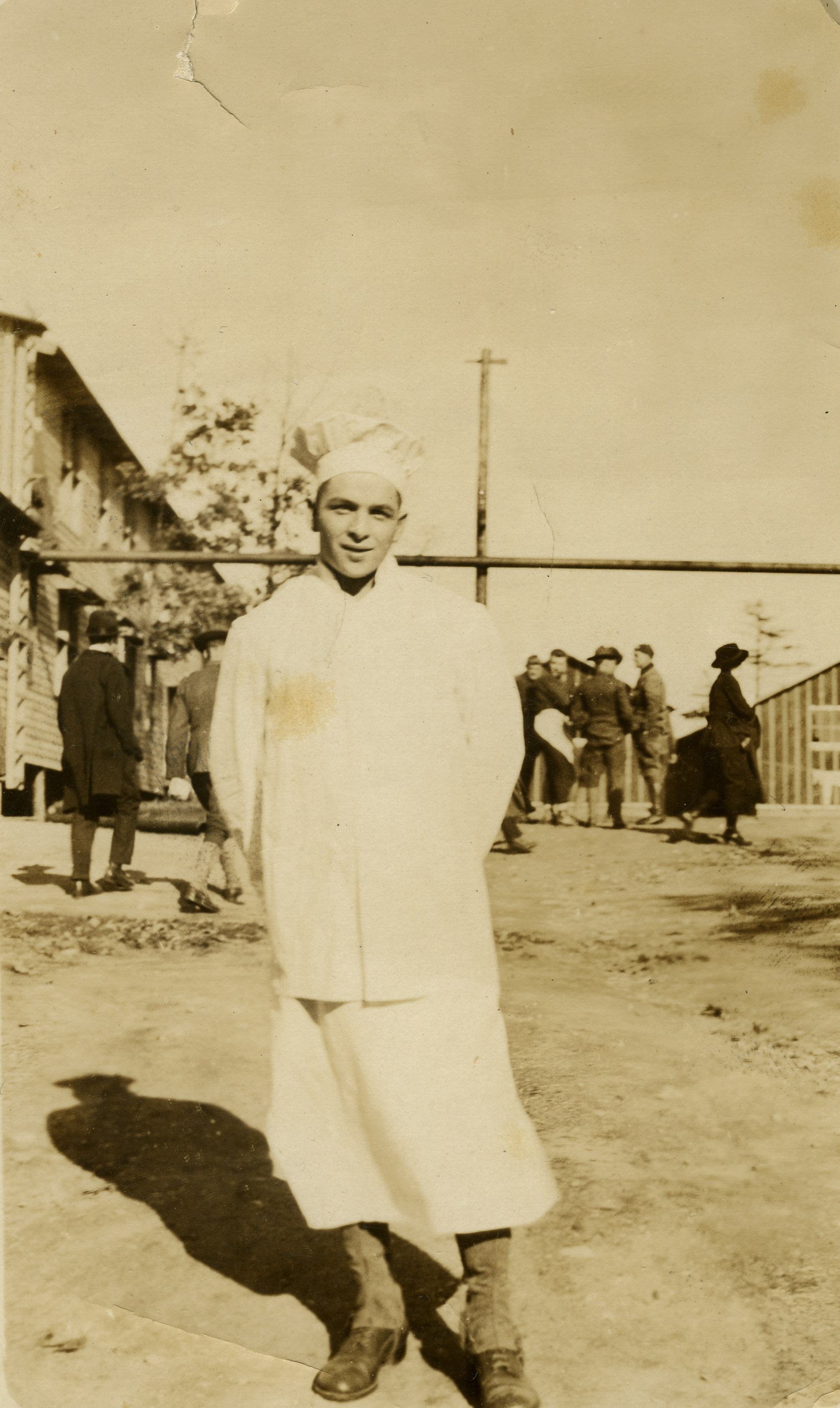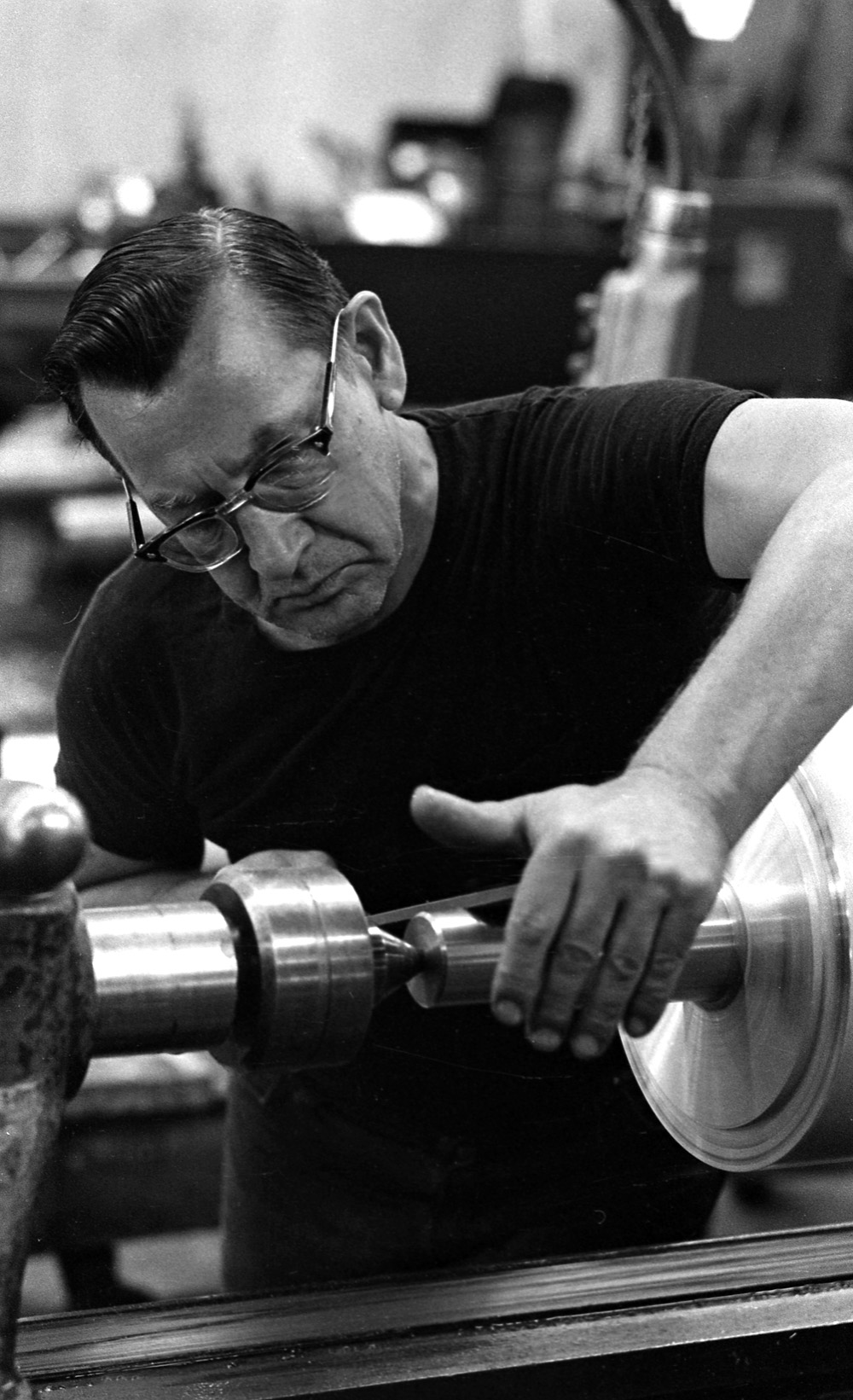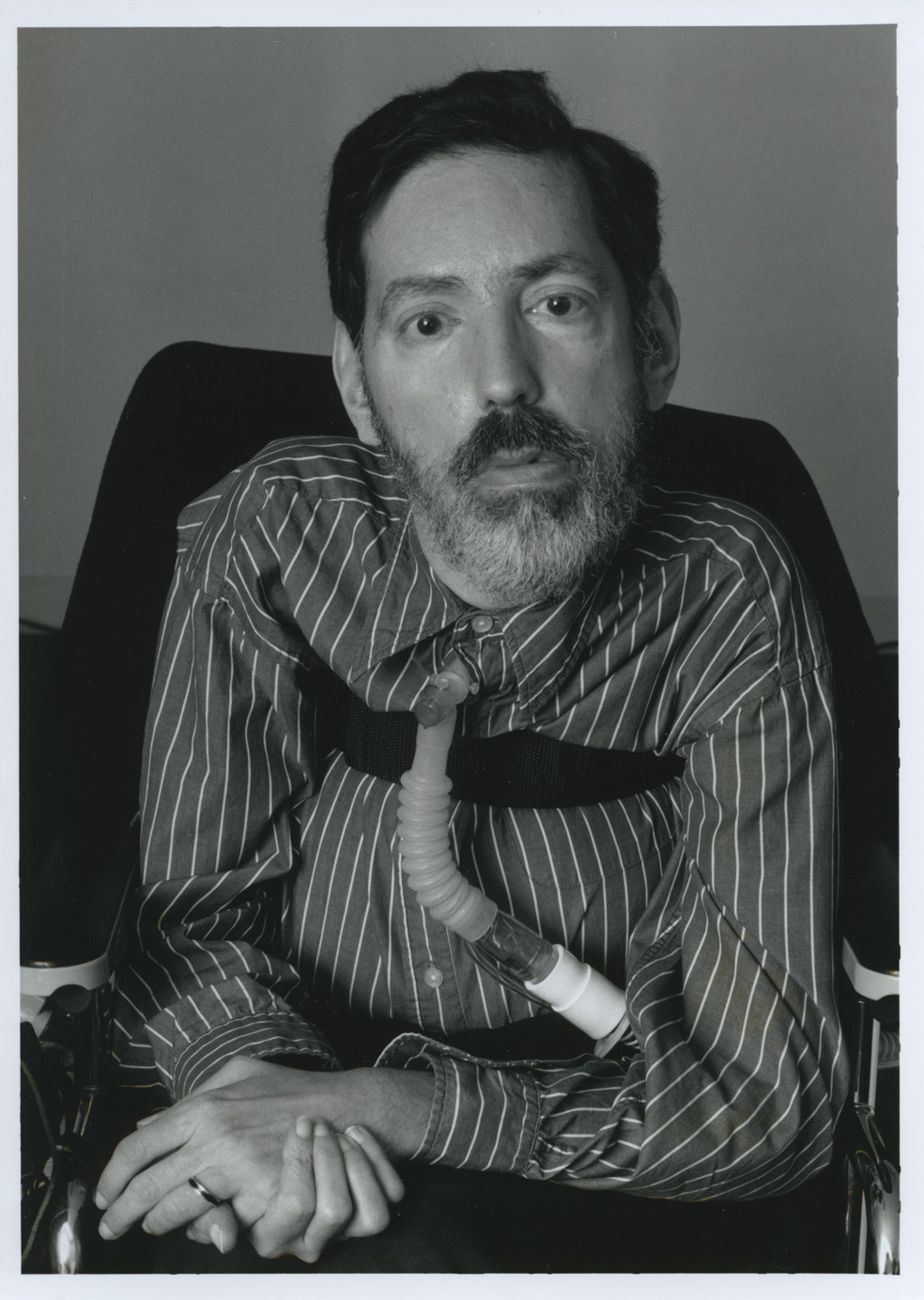IUE Local 213 Arbitration and Grievance Records
Restricted arbitration and grievance files for individual employees organized under Local 213 of the IUE in Springfield, Massachusetts.
Restricted arbitration and grievance files for individual employees organized under Local 213 of the IUE in Springfield, Massachusetts.
Union that represented workers at the American Bosch plant in Springfield, Massachusetts, affiliated with the International Union of Electrical, Radio and Machine Workers after 1949.
Records include by-laws, minutes of the Executive Board, General Council, and Membership meetings, correspondence, membership reports, grievance and arbitration records, contract negotiation proposals and counter-proposals, strike materials, and publications documenting the administration, activities, and membership of Local 206. Effects of changing national economy and international trade on workers and union affairs, through time, are evident.
Local chapter of the International Union of Electrical, Radio and Machine Workers that represented workers at the Chapman Valve Manufacturing Company of Indian Orchard, Massachusetts. Records include detailed minute books of general and executive board meetings as well as several ledgers that reflect the activities of the credit union and the Chapman Valve Athletic Association.
Obscure in origin, the Ireland Lyceum appears to have been a fairly typical antebellum debating society, organized as an intellectually stimulating social activity for the benefit of its members. Meeting regularly, probably in the city of Holyoke, members formally debated a pre-assigned topic such as “Has America arrived at the zenith of her glory” (decided in the negative) or “are life, liberty, and the pursuit of happiness inalienable rights,” after which the members might hear an address.
A mangled, fragmentary echo of its former self, the Constitution, by-laws, and regular proceedings of the Ireland Lyceum contains the slender records of a typical antebellum men’s debating society. The volume was later used as a scrapbook with newspaper clippings covering the pages, however the clippings have been removed from the first several pages by a conservator, revealing some of the original content.

A member of the American Expeditionary Force during the First World War, Charles Edward Jackson was the son of Irish immigrants and a native of Northampton, Massachusetts. Drafted into the 76th (Liberty Bell) Division and assigned to the 301st Ammunition Train of the 151st Field Artillery Brigade, he served in France for a full year beginning in June 1918, seeing front line duty only in the last few days of the war. After the Armistice, he was reassigned to a classification camp in central France where he helped process American soldiers heading home. After making his back in June 1919, he worked as a clerk in a hardware store in Northampton until his death in 1930.
Written entirely while in the military service, Charles Jackson’s letters describe his exploits during the First World War. An optimist, strong Catholic, and good soldier, Jackson describes his year overseas, from mustering at Camp Devens through life in an ammunition train and the long post-war months spent on duty in a classification camp in central France. Although nearly devoid of actual battle content due to the role his unit played and the reach of censorship, Jackson’s letters are descriptive and entertaining, describing day to day life, the late offensives of the war, the influenza epidemic and Armistice, and his growing sense of impatience while awaiting demobilization.
Access restrictions: Temporarily stored offsite; contact SCUA in advance to request materials from this collection.
An attorney and activist, Wayne Jaquith has been a prominent figure in the environmental and peace movements since the 1980s. A graduate of Cornell University and the Northeastern University School of Law (1977), Jaquith served as an officer in a remarkable series of organizations, including as executive director of the Nantucket Land Council, Physicians for Social Responsibility, the Lawyers Alliance for Nuclear Arms Control, and the Ploughshares Fund. He was also a co-founder of Professionals Coalition for Nuclear Arms Control, the Coalition for the Non-Proliferation Treaty, the Coalition to Reduce Nuclear Dangers, and the Arms Transfer Working Group.
Reflecting Jacquith’s diverse interests, this collection includes important materials relating to the peace, environmental, and antinuclear movements, including the Nuclear Freeze movement of the early 1980s. The collection has a rich assortment of newsletters and communications between activist organizations, along with background information, research, and writing.
Father and son wood turners, manufacturers of ladders, and general wood workers from the Loudville section of Westhampton, Massachusetts. Includes names of customers and businesses (bulk of the accounts are with local lumber and furniture dealers S.M. Smith Co., E.H. Lyman, Medad Pomeroy, and Charles Loud & Co.), items sold (such as bureaus, tables, and lumber), furniture that they repaired, and supply items which they acquired (such as varnish, stain, glass, tacks). Also contains documentation of employee payment, flour, tow, sugar, and coffee purchases, and employee lost work days.

Raised on Long Island, Ed Judice embarked on a path in photography at the age of 13 when he took a job sweeping floors in a local photo studio. After picking up work photographing locally and a stint in the army, he moved to New York city, Judice began doing commercial work for ad agencies and magazines and eventually with Polaroid. Through Polaroid, he began developing contacts in western Massachusetts, eventually moving to Wendell in the early 1970s. He maintains an active studio in Northampton.
The Judice collection consists of a series of 59 digital images relating to a photo documentation project at the Rodney Hunt factory in Orange, Mass., in 1973 and 1974; a series of photographs documenting the bicentennial of Wendell in 1981; and two video documentaries of the Three County Fair, Northampton, Mass., 2007, and “Benny and Joe: A friendship,” 2010.

An artist, writer, and activist for the disabled, Paul S. Kahn was born on Nov. 6, 1945, into a second-generation family of Jewish immigrants in Auburndale, Mass. Early in life, Kahn rebelled against the perceived “powerlessness” of the neuromuscular disorder with which he was born, pursuing an artistic, academic, and activist life. While studying drawing, painting, and sculpture at Boston University and earning a MA in counseling at Northeastern (1982), Kahn became an activist in the independent living movement and a pioneer in advocating for personal care assistance. Living independently from 1979, he worked as staff therapist at the Beth Israel-Deaconess Medical Center, as leader of a support group for the Muscular Dystrophy Association, and as a member of the Massachusetts Governor’s Advisory Commission on Disability Policy. In 1980, Kahn met Ruth Stern, who would become his frequent collaborator and wife of 21 years. As Kahn’s physical condition weakened after 1987 and he became dependent upon a ventilator, his creative focus shifted increasingly from art to writing and editing. The last two decades of his life were remarkably productive, resulting in over twenty plays and dozens of published essays and poems, and he was the long-time editor of the newsletter Disability Issues. Kahn died on Jan. 1, 2010.
Paul Kahn’s papers are a reflection of the intensely creative life of a committed activist. The collection centers on Kahn’s literary work, including manuscripts of his plays, essays, and poetry, but it includes numerous examples of his artwork and a number of home movies and tape recordings from his childhood.
Founded in Amherst, Mass., by Paula Green and associates in 1994, the Karuna Center for Peacebuilding addresses the global challenges of ethnic, religious, and political conflict. Often partnering with other regional, governmental, educational, or religious organizations, the Center regularly conducts courses, workshops, and other programs with the goal of addressing the root causes of conflict, preventing escalation, and fostering reconciliation. From their early efforts in Bosnia and Kosovo, they have branched out to more than twenty countries, including Afghanistan, Nepal, South Africa, and Palestine.
The Karuna Center collection is a record of an industrious organization committed to building peace internationally. The Center retains records of each international program, including copies of materials used during training and workshops and photographs and summary reports of their activities.